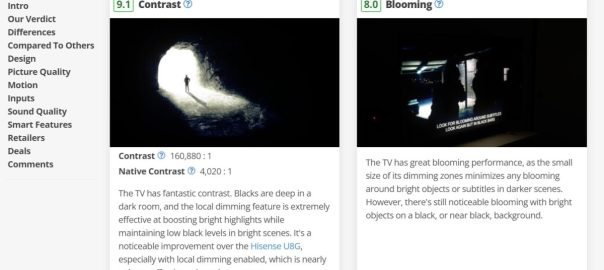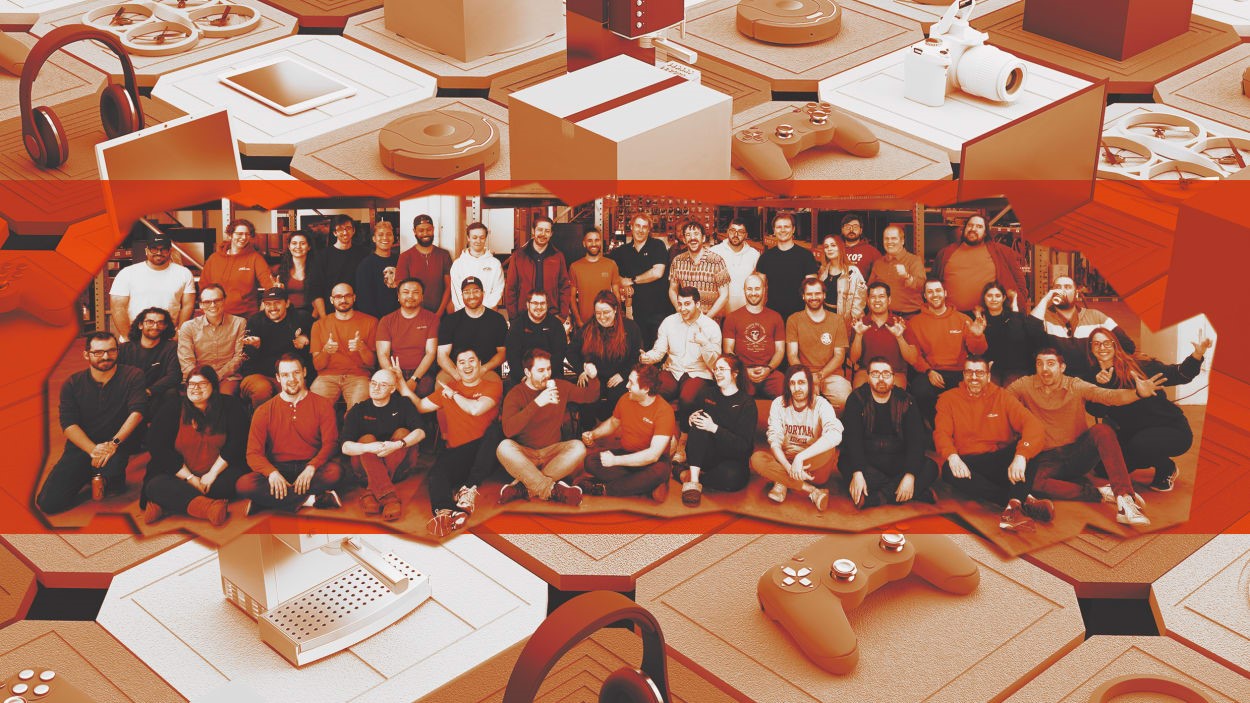By Jared Newman
Cedric Demers has never believed in a single best TV for most people.
As the founder and president of Montreal-based RTings, Demers has spent the last decade devising a more granular type of product review, in which practically every attribute from viewing angles to gaming responsiveness gets graded on a 100-point scale. Viewers can then compare those scores for every product to find the best fit.
“There might be one for you, but overall the best, it doesn’t exist,” Demers says. “It really depends on what you’re going to use it for.”
I’ve long been fascinated by RTings (pronounced “ratings”), partly because of its methodical approach to reviewing gadgets, and partly because of its incredible Google juice. It always seems to rank first when you search for specific TV models; my theory is that almost everyone who’s researched TVs online has come across an RTings review. Yet compared to popular product review sites like The New York Times-owned Wirecutter, not much has been written about RTings. I reached out to Demers to try and rectify that.
In a way, RTings feels like Wirecutter’s antithesis, rejecting the idea that one can condense dozens of reviews into a handful of prescriptive recommendations. But its ambitions are no different. Just as Wirecutter started with consumer tech before expanding outward, Demers says he wants to bring RTings’ data-driven approach to all kinds of products.
“The end goal,” he says, “is to cover everything.”
Filling the void
Demers had the idea to launch a tech review site in 2011 while working as an engineer on Microsoft’s Office team, though he didn’t intend to actually review anything himself. His original vision was for a Rotten Tomatoes of gadgets, which would aggregate reviews from other tech sites into an overall score.
“I tried that for roughly two years, and that didn’t work,” he says.

Part of the problem was a lack of material. Back then, review sites typically focused on the higher-end TVs that vendors provided for evaluation, rather than the budget sets he’d hoped to cover. But even for the reviews that did exist, Demers had trouble making connections between them. He felt they were too subjective, leaning on the reviewers’ personal preferences instead of data.
So in 2013, Demers devised a new plan: He would buy the TVs himself, bring them home for testing, then quickly return them to get his money back.
“What I needed was data,” he says. “But more importantly than data, what I needed was to bring the TV into people’s homes. Instead of them having to go to Best Buy to see it in person, I needed to bring the data to them.”
The first true RTings review—published in July 2013 for a Samsung F5300 plasma TV—was crude by the site’s current standards. Demers’ reflection is visible in several of his sample photos, and the accompanying text is minimal. He only took about a tenth of the measurements that RTings gathers now.
Still, the outline of what RTings would become was there, with scores for individual attributes such as uniformity, motion blur, and “dark scene in a bright room.” Demers gave the TV a ho-hum 7.4 out of 10, then began repeating the test process with other TVs.
The extra effort paid off. Until that point, Demers had been living off savings from his job at Microsoft, but with the original reviews came an uptick in traffic, along with affiliate revenue when people clicked through to purchase TVs online.
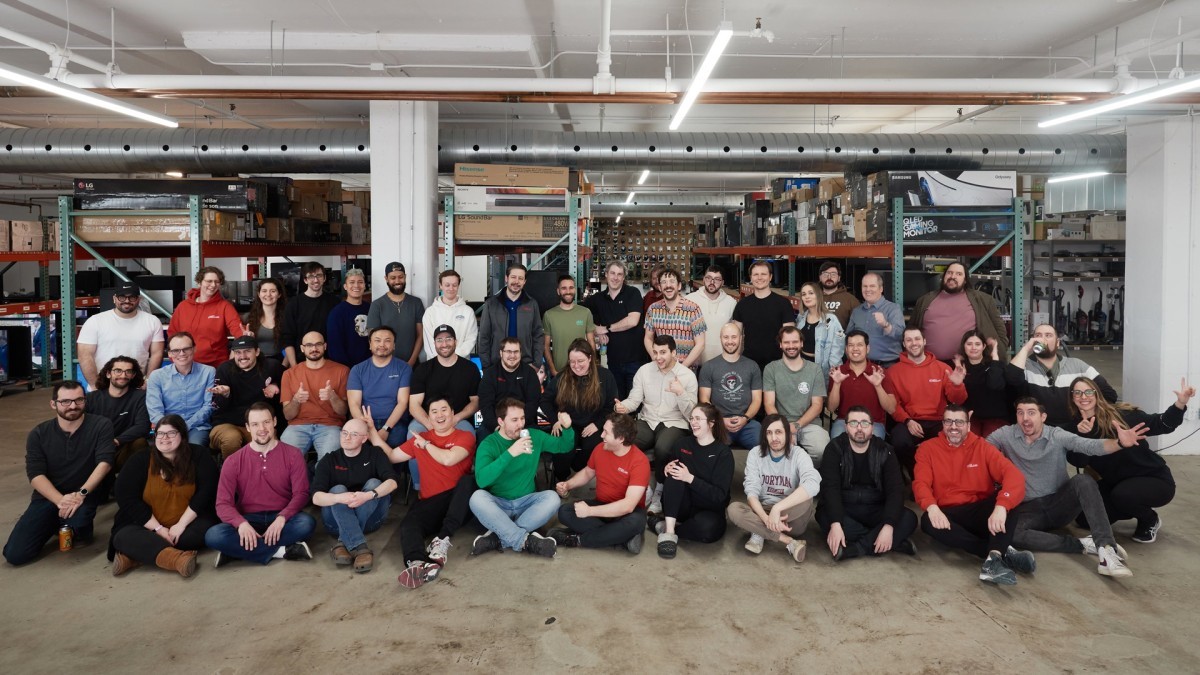
“When I started testing myself, that’s when it actually picked up,” he says.
In early 2015, he hired RTings’ first employee and moved operations from his apartment to an actual office. (He also started leasing TVs from a local open-box seller instead of trying to buy and return them at retail.) Today, RTings employs more than 60 people, most of whom work on the editorial side. And unlike a lot of consumer tech outlets right now, it’s hiring.
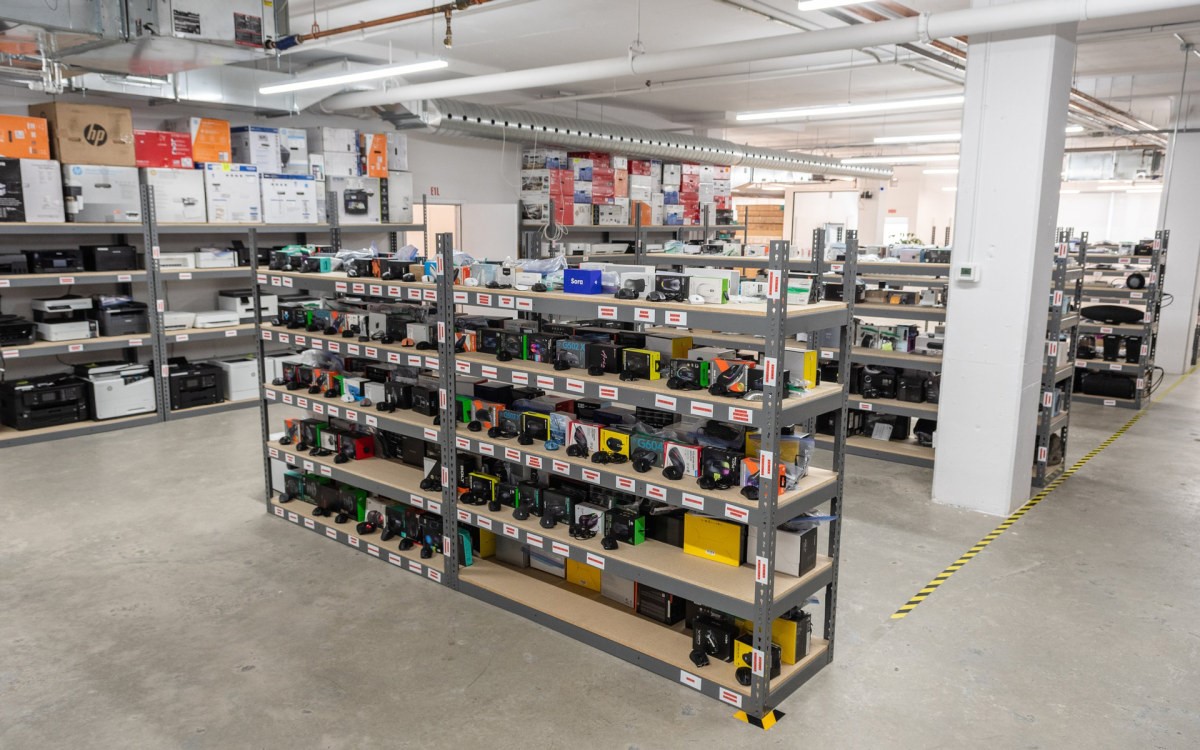
A review for every occasion
What makes RTings work isn’t the methodology per se, but the breadth of coverage that its methodology supports.
The site reviews roughly new 40 TVs per year, including some ultra-budget models that other review outlets still ignore. It also retests those TVs on a regular basis, updating them to reflect new benchmarks or firmware updates. It’s exactly the kind of authoritative, fresh content that Google’s algorithms are meant to look kindly upon.
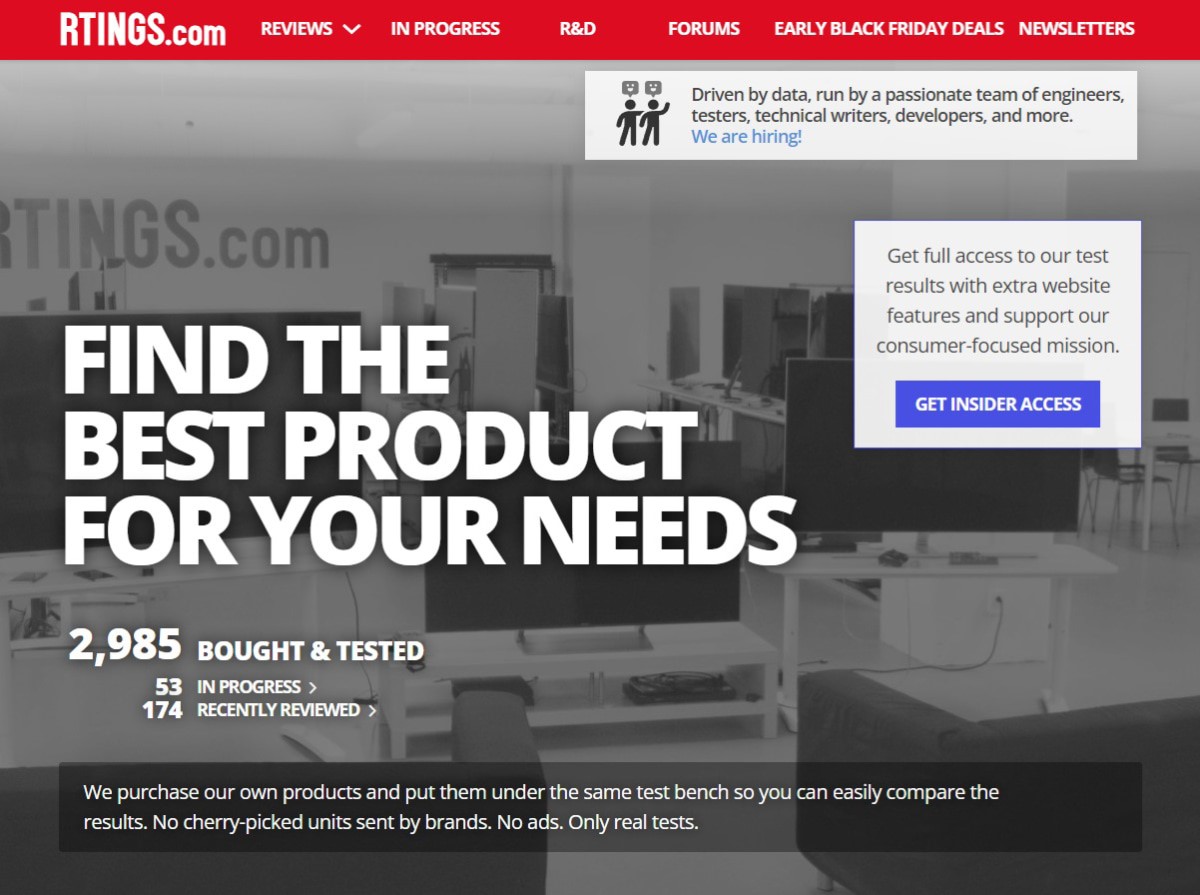
It’s not easy to produce, though, especially on a larger scale than just TVs. RTings expanded to headphones in 2016, but took a couple more years after that to add its next category, computer monitors. The site now covers 13 product types, including some unglamorous ones such as printers and vacuums, but it’s also steered clear of some obvious categories, such as smartphones and desktop computers.
Demers says RTings is still researching how its model might apply to those other categories, and notes that the biggest obstacle is the time it takes to build new methodologies. For each new category, RTings has to come up with benchmark tests that it can repeat across every product, and if a product comes out with some novel new feature, the site then has to update its methodology to account for it.
“There are some other publications that you can go into a new product category within two or three weeks or something, assign it to a journalist, send a few products to the person, and they come up with something,” he says. “We can’t do that.”
New business models
RTings’ data-obsessed review format is hardly new. Its most direct equivalent is Consumer Reports, which applies a similarly methodical approach to all kinds of products (TVs included).
The crucial difference is that RTings makes all of that data public instead of reserving it for paid subscribers. The site does have a three-article limit, plus a $10 per month “Insider” subscription for unlimited viewing and extra perks, but that limit is easily bypassed (for instance, with a private browser tab). Most of the site’s revenue still comes from affiliate fees.
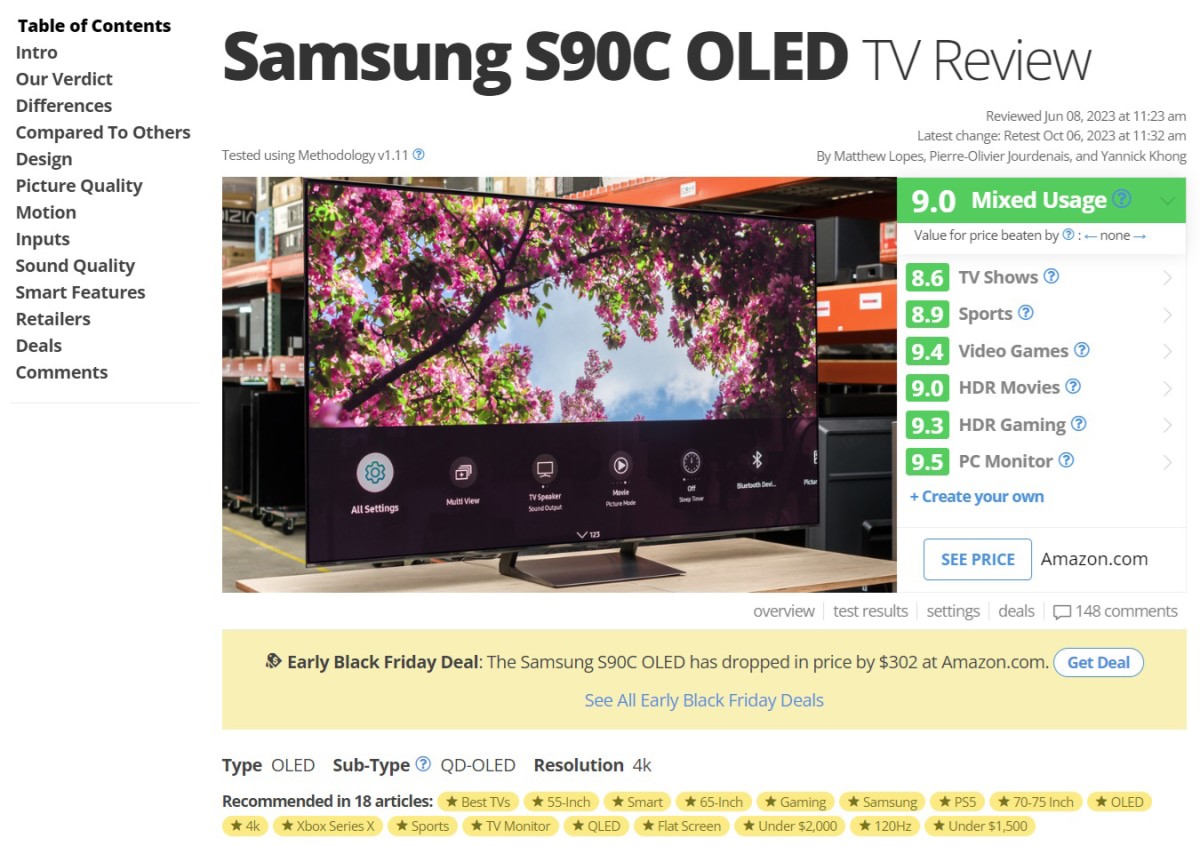
Demers notes that RTings is profitable, with 2023 revenues up around 40% year-over-year so far. But as RTings tries to expand, Demers is starting to consider other growth avenues, including ones he’d previously dismissed.
For instance, he used to oppose display ads and didn’t think much about driving page views, but now says it might make sense in categories that don’t bring in much affiliate revenue. He’s also rethinking whether to accept product loans from vendors instead of purchasing everything outright. Demers originally feared that vendors might cheat by running extra quality control on their review units, but he now says there might be ways for both approaches to coexist.
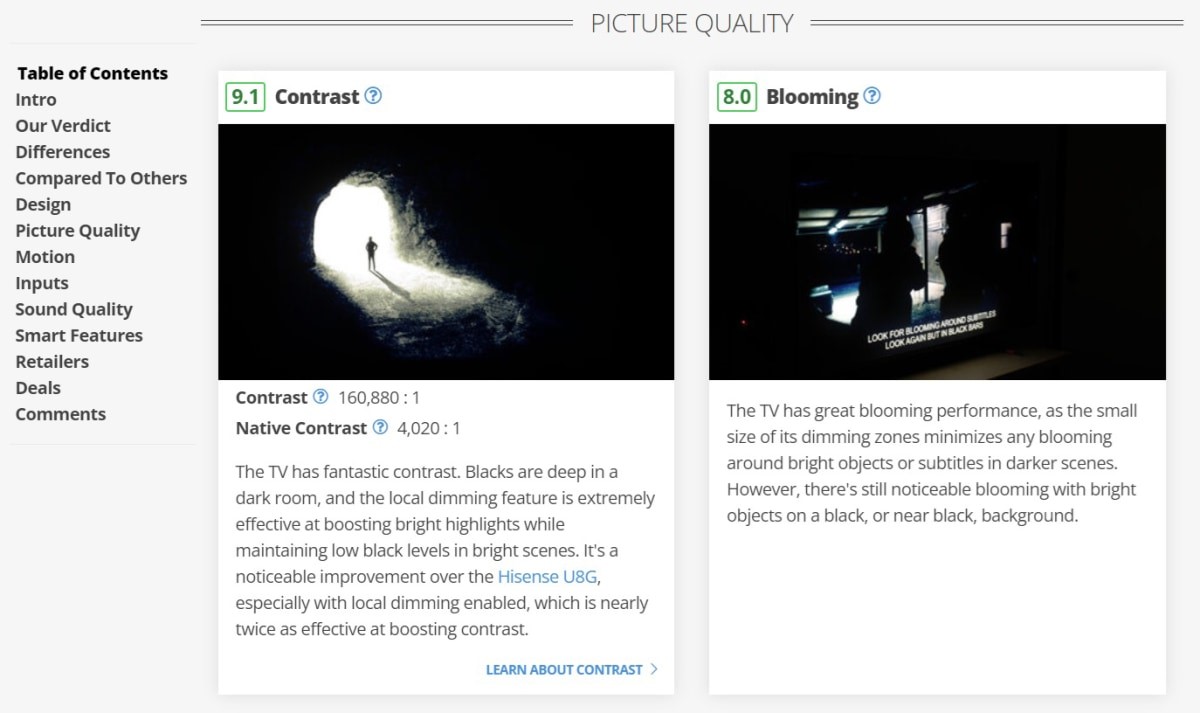
He also doesn’t rule out the possibility of outside funding or acquisition. While RTings is currently self-funded, Demers notes that there’s always interest from outside parties.
“The main thing I care more about is really about helping people find the best product, and solving that problem at scale.” he says. “If a partnership makes sense, I would consider it if they can help us achieve that goal.”
Slow and steady
Those who followed Wirecutter’s trajectory might look askance at such ideas. As Charlie Warzel documented recently for The Atlantic, some of that site’s visitors—and former writers—feel that it hasn’t been the same since the New York Times acquired it in 2016, and that it sometimes spread itself too thin while trying to scale up.
But Warzel’s piece also brought up a subtler point, that both the internet and the nature of online shopping are different than they were when Wirecutter first arrived. As the number of buying options have only expanded, the distinctions between them have diminished. Even within TVs, the budget brands are often competitive with bigger names.
Joe Golden, the founder and CEO of a product recommendation site called PerfectRec, says it’s getting harder to identify one model—or even a handful of options—as the absolute best. That’s especially true in categories where prices—and therefore value—are in constant flux. (PerfectRec’s own approach involves quizzing shoppers on their budget and preferences, then responding with a few potential matches.)
“Often, like with TVs, there are a lot of somewhat similar products,” he says. “And if one is on sale, often that would be the best product to buy,” he says.
RTings’ approach is certainly messier than a site like Wirecutter, and its array of numeric scores are harder to parse than a concise list of recommendations. But if the way we shop now is largely about vetting whatever happens to be on sale, maybe a messy-but-methodical approach is what’s required.
Demers, for his part, says he’s not paying much attention to those broader debates. He’s just trying to bring RTings’ approach to more kinds of products while keeping its principles intact.
“I don’t focus much on what others are doing,” he says. “Personally, I focus more on doing a good job of gathering those test results, exposing the products, and letting people decide.”
(3)
